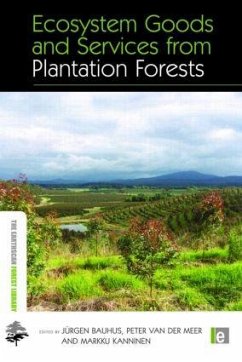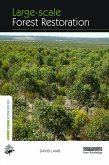Plantation forests often have a negative image. They are typically assumed to be poor substitutes for natural forests, particularly in terms of biodiversity conservation, carbon storage, provision of clean drinking water and other non-timber goods and services. Often they are monocultures that do not appear to invite people for recreation and other direct uses. Yet as this book clearly shows, they can play a vital role in the provision of ecosystem services, when compared to agriculture and other forms of land use or when natural forests have been degraded. This is the first book to examine explicitly the non-timber goods and services provided by plantation forests, including soil, water and biodiversity conservation, as well as carbon sequestration and the provision of local livelihoods. The authors show that, if we require a higher provision of ecosystem goods and services from both temperate and tropical plantations, new approaches to their management are required. Thes








